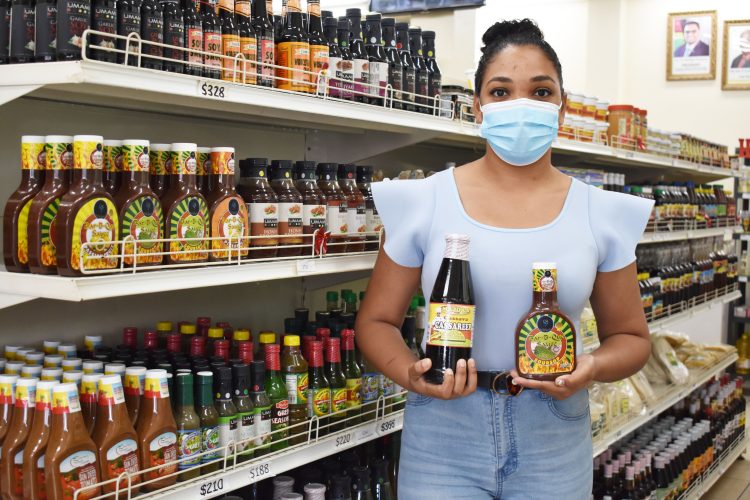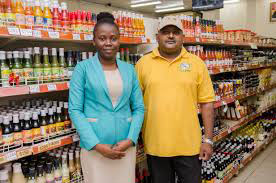These days, the shelves filling the space at the corner of Robb & Camp streets that houses the Guyana Shop, administered by the Guyana Marketing Corporation (GMC), have taken on a less appealing image than had been the case up to a few months ago. Spaces once occupied by sauces, spices, wines and an assortment of tamarind balls and other delectable condiments are now less crowded. A few months earlier the manager of the Shop had told the Stabroek Business that its changed appearance had been a function of a mutual understanding between the GMC and the agro-processors that the advent of the COVID-19 pandemic and the attendant decline in sales had given cause for pulling back on the stocking of the shelves. In the weeks ahead we were to learn from the owners of those brands that stocked the shelves that that indeed had been the case and that the loss of that outlet had been the primary reason why their businesses were either tottering at the brink or had ‘gone under’ altogether.

Ironically, insofar as these intrepid small businesses were considered, the Guyana Shop was in no way to blame for their circumstance. They appeared to accept, with what we found to be a surprising sense of stoicism, that it was what it was. Where there were no buyers, there was no role for them except to continue to look for light at the end of the tunnel. Oddly enough, in a society where institutions run by the state are generally considered to be mostly inefficient, the vendors spoke well about the way in which the Guyana Shop had served as an outlet for their products. Their wish, many of them said, was that there could be some kind of upgrading of the facility, of a manner that matched the standards of contemporary food outlets even though not a great many of them felt that that would ever happen. Here, the prevailing attitude was that government tended to do things in a more-or-less haphazard manner as if it had cut its teeth on mediocrity.
People visited the Guyana Shop for various reasons. For some it was a matter of being home on holiday and being directed to a shop where you could get local food products to take back to the USA, or Canada, or wherever. Then there were the wine-lovers who had, it seemed, become ‘hooked’ on the shockingly high quality of the assorted fruit wines which one felt could hold their own on the shelves of the most upmarket shopping malls in the metropolis. Some visited for somewhat more mundane reasons, like simply picking up a few packets of tamarind balls. Whatever the reason, it seemed that the Guyana Shop had developed both a reputation and an aura of its own and that it stood out as a facility run by the state that had not become entombed in ‘red tape,’ mediocrity, and a collection of downright absurd protocols that caused people to avoid them like the proverbial plague.
There was the downside though… like the fact that it simply had not occurred to whichever department of government the Guyana Shop falls under that commercial outlets of that kind had, over time, taken a quantum leap and that there were the Bountys, the Massys, the Mattais et al and that it was high time that the state authorities disabuse the populace of the notion that mediocrity was, decidedly, its strongpoint. There were things that took you to The Guyana Shop though, regrettably, you never felt inclined to tarry beyond the time-frame of your particular errand.
And while the cynics might argue that state involvement in the supermarket industry was an affront to the private sector there is the contention – and it is an altogether valid one – that there is nothing wrong with the creation of modest national ‘shrines’ to what we can do and more particularly to those who emerge out of their ordinariness to parade their skills before the country and the world.
There used to be the Market Days, modest but intensely pleasing affairs, Saturdays, mostly, when people would set aside their accustomed municipal market shopping and come out in force to ‘patronise’ the farmers who had turned up from far-flung locations to benefit from what one might call a ‘one off’ field day. Pity indeed, the popular view insisted, that these Market Days could not, somehow, be consolidated into more elaborate affairs.
The Guyana Shop can thrive even amidst the ‘rough and tumble’ of the oil and gas-related investment invasion that has been promised to us. The market, as much as the reputation of what the Shop has to offer will grow, exponentially one hopes and the people whose products have been the ‘bricks and mortar’ that laid the foundation for The Guyana Shop will grow with it and, one trusts, reaps such rewards as are forthcoming for what they have put in to make it work.

